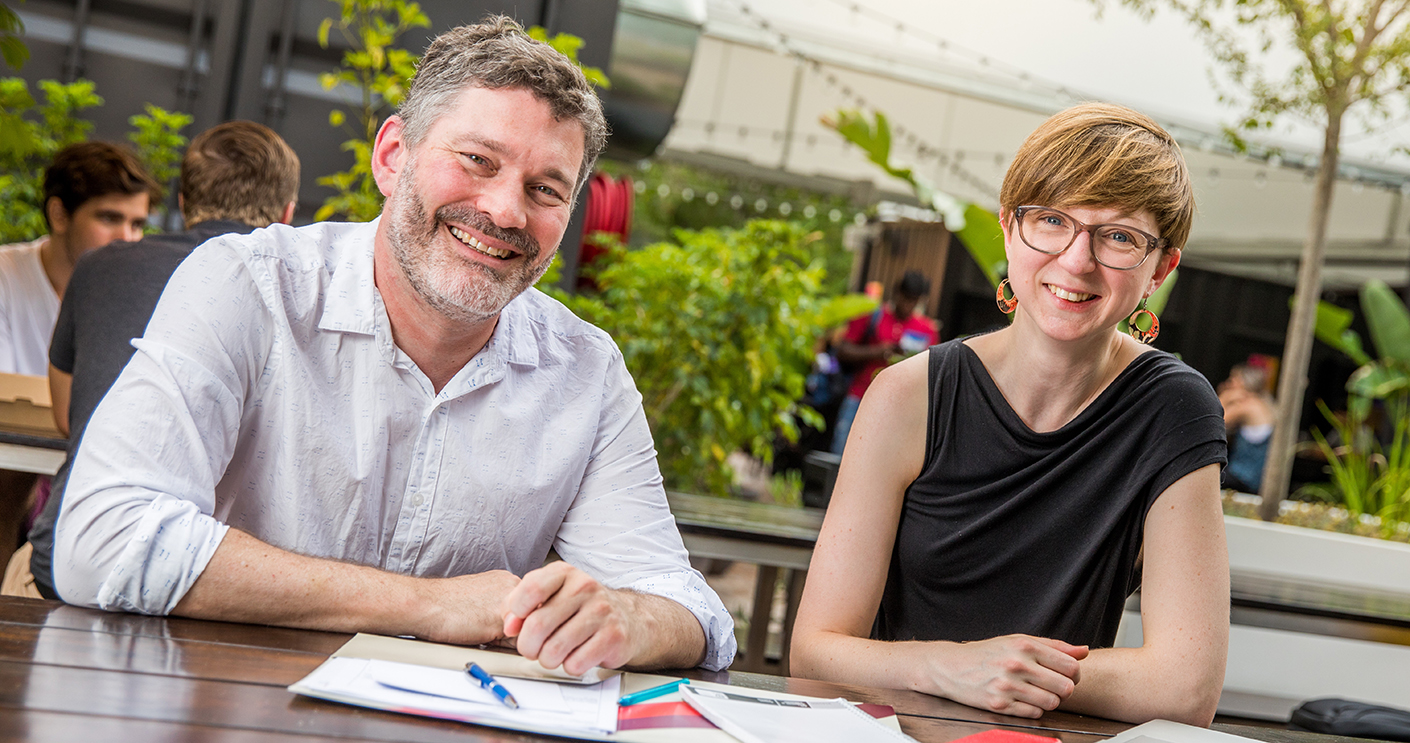Gender equity cannot be achieved with a strategy alone – creating a respectful, inclusive and equitable culture takes a University-wide effort. But what does real change look like and how can we, as individuals, help make it happen?
Daniel Zucker and Jo Dawson are just two of the many Macquarie people who have been actively working to help the University reach its gender equity goals.
Together with their colleagues in the Department of Physics and Astronomy, Daniel and Jo have been focused on finding ways to remove systemic obstacles to opportunity and proactively challenge gender bias – a problem that’s particularly prevalent in STEMM (science, technology, engineering, mathematics and medicine) fields. In campaigning for improvements they’ve helped bring about a culture change in the Department that has seen it externally recognised as a leader in gender equality.
Here, Daniel and Jo explain how the Department has tackled inequality head-on.
“In 2015 our astronomy research group established a diversity committee to address some of the structural and cultural problems we’d identified within the department. The committee developed a framework for change, which saw us awarded a bronze Pleiades Award for the advancement of women.
The committee was expanded to be department-wide the following year and with the support of our HoD Mike Steel we’ve now been recognised with a second Pleiades Award at the Department level.
Some of the concrete things we’ve done are things like removing gendered information from job applications, improving the gender balance of our invited speakers, and establishing a fund to assist parents travelling to conferences and meetings with children. We hold all meetings in family-friendly hours – 10am to 4pm – and we enable working from home whenever feasible.
These are just a few examples, and there’s a lot more work to do, but we’re already seeing evidence of a shift in the department culture at ground level. Conversations about diversity and equity are now the norm, and many staff are regularly viewing their actions through that lens. We think that our people – including our students – are more comfortable raising issues than they were before.”
Always striving for better
Both Jo and Daniel say that a diverse and equitable culture – where achievements and abilities are recognised regardless of gender, ethnicity or sexual orientation – is something that we should all be working towards.
“A diverse workplace is a desirable goal, both for better science and for a more equitable society,” argues Daniel. “As someone who superficially fits the older nerdy male scientist stereotype, but carries his diversity ‘on the inside’, my ideal workplace would be one in which the many playing fields have been levelled and people are judged by their abilities, not by how they conform to traditional societal notions.”
Jo – a self-described ‘idealist’ – agrees, adding that it’s personally important to her that her son grows up to view women as inherently equal and capable.
“The gender-stereotyping in our culture is something that limits both men and women,” she says. “Gender discrimination in STEMM is a small part of the picture, but it’s the part I have some small power to influence.”
With a shared vision for the Department and the University more broadly, and cultural shifts already being felt, Jo says she is hopeful for the future.
“I do feel that things are getting better,” says Jo. “My own mother was a physics PhD student and some of the behaviour she experienced would be categorically unacceptable in today’s workplaces. There’s a lot left to do, but I think we are moving in the right direction.”


 Back to homepage
Back to homepage
How did you get on my facebook and please get off